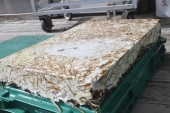
 1
1




 1
1




Author 'Perennial Vegetables', co-author 'Edible Forest Gardens'.
Website - http://www.perennialsolutions.org/




More Info at http://www.rtpermaculture.org/ http://www.permacultureglobal.com/users/2660-neil-bertrando Classes in Reno, NV http://www.urgc.org/#!permaculture/c4fw Email: neilbertrando@gmail.com








 2
2








 3
3




A human being should be able to change a diaper, plan an invasion, butcher a hog, conn a ship, design a building, write a sonnet, balance accounts, build a wall, set a bone, comfort the dying, take orders, give orders, cooperate, act alone, solve equations, analyze a new problem, pitch manure, program a computer, cook a tasty meal, fight efficiently, die gallantly. Specialization is for insects.
-Robert A. Heinlein




Every day, every season there is change, something new to observe, and constant learning. Permaculture has the dimensions of a life-oriented chess game, involving the elements, energy, and the dimensions of both life-forms and building structures (also with political, social, financial, and global implications).
 2
2




 2
2




 4
4




“If we are honest, we can still love what we are, we can find all the good there is to find, and we may find ways to enhance that good, and to find a new kind of living world which is appropriate for our time.” ― Christopher Alexander
 1
1




I want to be 15 again …so I can ruin my life differently.
 2
2




John F Dean wrote:Hi Rachel,
I have seen where organizations have held an annual book sale of mammoth proportions. The book sale is usually several days long and coupled with a farmers market, community yard sale, etc. to bring in the largest range of people possible.
“If we are honest, we can still love what we are, we can find all the good there is to find, and we may find ways to enhance that good, and to find a new kind of living world which is appropriate for our time.” ― Christopher Alexander

 2
2




John F Dean wrote:I have seen where organizations have held an annual book sale of mammoth proportions. The book sale is usually several days long and coupled with a farmers market, community yard sale, etc. to bring in the largest range of people possible.
How Permies works: https://permies.com/wiki/34193/permies-works-links-threads
My projects on Skye: The tree field, Growing and landracing, perennial polycultures, "Don't dream it - be it! "

|
I'm a lumberjack and I'm okay, I sleep all night and work all day. Tiny lumberjack ad:
World Domination Gardening 3-DVD set. Gardening with an excavator. richsoil.com/wdg |
